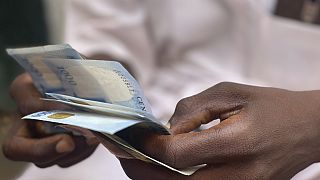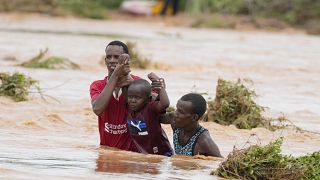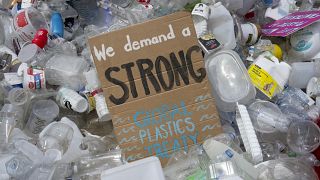Business Africa
The entrepreneurial boom in Africa is undeniable, but behind this fervor lies a concerning reality.
According to a report published by TechCabal Insights on the occasion of International Women's Rights Day, only 1.5% of funds raised by African startups between 2019 and 2023 were allocated to businesses led by women.
This observation highlights the persistent challenges faced by female entrepreneurs on the continent, particularly in STEM fields (science, technology, engineering, and mathematics), where female underrepresentation limits their access to funding. Despite these obstacles, notable successes are emerging, especially in the financial sector.
To ensure the sustainability of these successes, it is imperative to significantly increase investment funds dedicated to African women entrepreneurs, as emphasized by our guest, Evelyne Dioh, Executive Director of the WIC Capital fund. This pioneering fund aims to support women-led businesses in Francophone West Africa, thereby contributing to fostering inclusive economic growth on the continent.
"Biases exist, but in parallel, we have figures and data showing that women entrepreneurs manage to accomplish more with the limited funds they manage to raise." - Evelyne Dioh, Executive Director of WIC Capital.
A new era begins: Congo joins the league of LNG exporters
The African nation of Congo joins the league of liquefied natural gas (LNG) exporters with the launch of its first cargo, marking a significant milestone in the Congo LNG project.
Initiated by ENI and its local partners, this project promises economic growth opportunities for the country while contributing to global energy balance. The first cargo, destined for the Italian regasification plant in Piombino, Tuscany, symbolizes this significant advancement.
The Congolese government aims for a production of over 600,000 tonnes of LNG this year and 3 million tonnes next year, with an expected profit of over 44 million euros in the 2024 budget, hoping to meet the needs of a country where 41% of youth are unemployed.
IMF and UAE bail out cash-strapped Egypt
The Central Bank of Egypt, with the support of major Gulf lenders and donors, is undertaking drastic measures to stem the recent economic deterioration. This initiative includes a long-awaited currency devaluation, facilitating an expanded $8 billion IMF loan program.
Simultaneously, a massive $35 billion investment from the United Arab Emirates, part of which is allocated to the Ras al-Hikma development project, aims to inject funds into the struggling Egyptian economy.
While this infusion of liquidity may alleviate the financial crisis in the short term, it raises concerns about its long-term implications for Egyptian consumers, particularly in terms of inflation. However, according to geopolitical analyst Hichem Lehmici and secretary of the GIPRI,
"Egypt is embarking on a very ambitious economic strategy with megaprojects. Between the new capital, the construction of a nuclear power plant that is already nearly completed, the high-speed train that will connect Cairo, Alexandria to El Alamein, and other projects including the artificial river that will effectively create a kind of new canal between the Nile and the Mediterranean, which is the largest project of its kind globally in terms of geo-engineering," emphasized geopolitical analyst Hichem Lehmici.
"However, it can simply be said that the issue of inflation for a population that already accounts for almost 60% of people in poverty and nearly 30% below the poverty line represents a huge problem for Egypt. On the other hand, there is also the question of corruption, which is not adequately addressed by the government, as well as another problem, which is the industrial dimension behind a lot of investments. But these are investments mainly in the residential economy, and the vision is not comprehensive enough. So, on the question of industrialization and notably support for SMEs. But the industrial issue remains a major weakness for Egypt," he added.




![Zambia pushes for deal on unresolved debt [Business Africa]](https://static.euronews.com/articles/stories/08/20/76/34/320x180_cmsv2_105f1971-0b8b-5b79-befb-d054eed5afec-8207634.jpg)

![Can Africa’s soil sustain food security? [Business Africa]](https://static.euronews.com/articles/stories/08/39/08/36/320x180_cmsv2_6c750e33-e25d-57d1-a896-b069180361f4-8390836.jpg)




01:30
UN reports widening global inequality in sexual and reproductive health and rights
01:00
Pics of the day: April 17, 2024
01:38
Congo's President Denis Sassou-Nguesso seeks to foster global peace
02:05
Women's stand-up breaking barriers in Africa
01:48
IWD: Ending gender inequality in farming to achieve food security and generate growth
01:02
Pics of the day: February 28, 2024